The Sunshine Coast's one-stop automotive shop
Phat Wheels can replace your brakes, perform log book servicing and auto air conditioning servicing & repair, fix or replace worn suspension components, and is an approved inspection station (AIS) for vehicle roadworthy certificates.
Phat Wheels also specialise in complete wheel & tyre packages, wheel alignments, rotating & balancing, puncture repairs, and suspension adjustments and upgrades including 4x4 lift kits and adjustable coilovers.
If you would like to book an appointment for a service or mechanical work, please contact us or visit our Kunda Park showroom.
Brakes
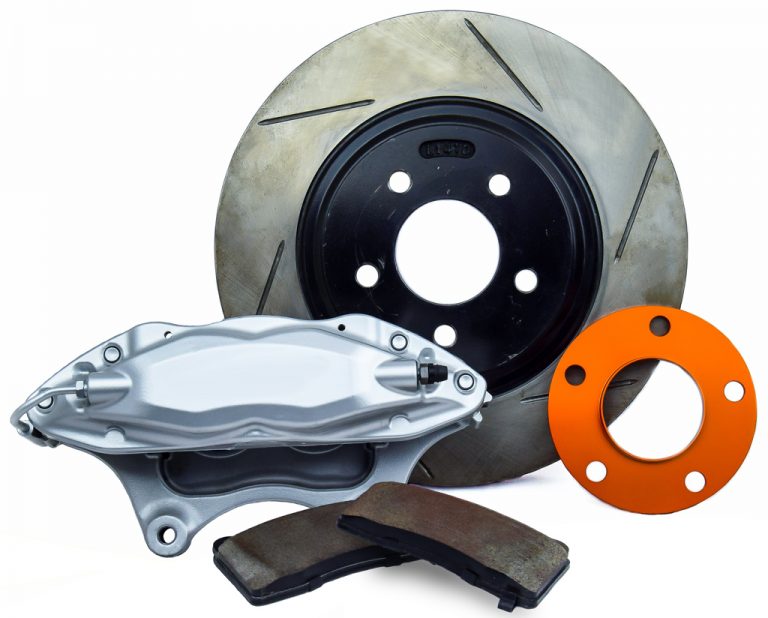 When was the last time you had your brakes checked? Call Phat Wheels today for a free inspection to ensure that your car’s braking system will never fail you.
When was the last time you had your brakes checked? Call Phat Wheels today for a free inspection to ensure that your car’s braking system will never fail you.
When it comes to your vehicle’s safety, brakes top the list of systems that need regular checking. If brake service is neglected, you’re gambling with your safety, and that of your passengers and other drivers.
Some common brake system problems are:
- PULL – The car pulls to one side when the brakes are applied.
- GRAB – “Touchy” brakes grab with the least pedal pressure.
- DRAG – Sticking brakes, hot wheels or an apparent engine power loss are all signs of drag.
- SQUEAL – Excessive squeal, screech, grinding, groaning, chatter, clatter or bang, means your brakes need attention.
- LOW PEDAL – The pedal nearly touches the floor before the brakes function.
- HARD PEDAL – Extreme foot pressure is required to make the brakes function.
- VIBRATION – The brake pedal, steering wheel, or the entire vehicle shakes, vibrates or pulsates when braking.
- BRAKE WARNING LIGHT – The parking brake is on, or, there is a serious drop in hydraulic pressure.

Suspension
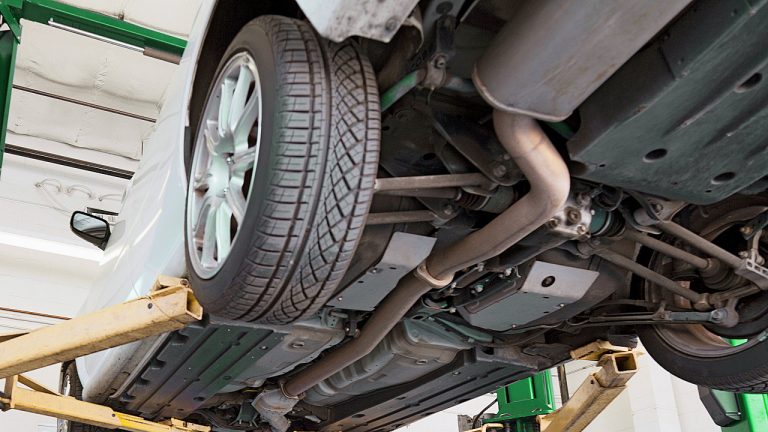 Your suspension system not only makes your ride smoother, but it is also a key component of driving safety, and without it your tyres and brakes wouldn’t work as effectively.
Your suspension system not only makes your ride smoother, but it is also a key component of driving safety, and without it your tyres and brakes wouldn’t work as effectively.
Your Suspension System – how does it work?
Your car’s suspension system allows you to ride relatively undisturbed while travelling over rough roads. It also allows your vehicle to corner with minimum roll or sway, stop with a minimum of brake dive, and accelerate with a minimum of acceleration squat. This dynamic control keeps the tyres in contact with the road.
The components of your car’s suspension system perform six basic functions:
- Maintain correct vehicle ride height
- Reduce the effect of shock forces
- Maintain correct wheel alignment
- Support vehicle weight
- Keep the tyres in contact with the road
- Control the vehicle’s direction of travel
However, to ensure all of this happens, the suspension components, both front and rear, must be in good working condition.

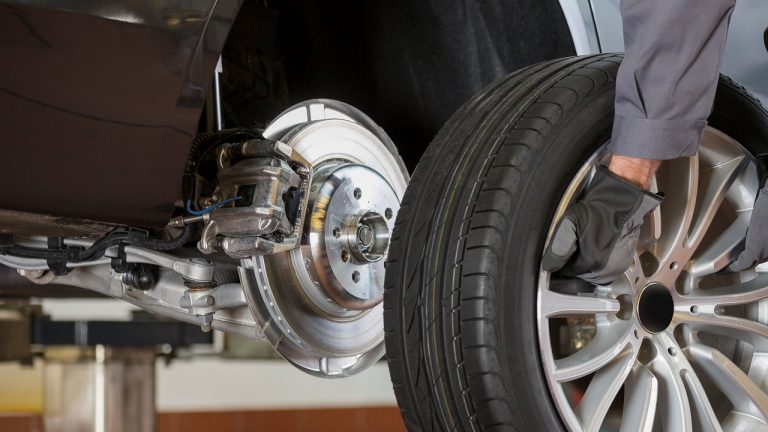 Components of your Suspension System
Components of your Suspension SystemYour car’s suspension system is made up of struts, shock absorbers, bushing, springs and tyres.
Shocks and struts are important for your driving safety. Their function is to keep the tyres on the road by controlling spring and suspension movements and by maintaining a vertical load on the tyres.
Under normal driving conditions, the shocks on your car stroke over one thousand times per kilometre. As a result, shock absorbers wear out quite quickly. To maintain the maximum ride comfort and handling of your vehicle, Monroe, a global supplier of suspension parts, recommends to check shock absorber performance every 20,000 kilometres and have them changed every 80,000 kilometres.
The springs support the weight of your vehicle, acting as a flexible link allowing the frame and body to ride relatively undisturbed while the tyres and suspension follow the road.
The Danger of Worn Shocks
It only takes one worn shock absorber in your car to compromise your safety. When your shock absorbers aren’t working properly, your braking distance can be increased by two metres when travelling at 50 kilometres per hour. Aside from the obvious safety risks, this can also cause a great deal of damage to your car.
Worn shocks may lead to:
- Excessive tyre bounce
- Poor tyre-to-road contact
- Reduced suspension control
- Premature tyre wear
- Reduced handling and braking performance
- Noise and suspension vibration
- Premature wear of suspension components

Servicing
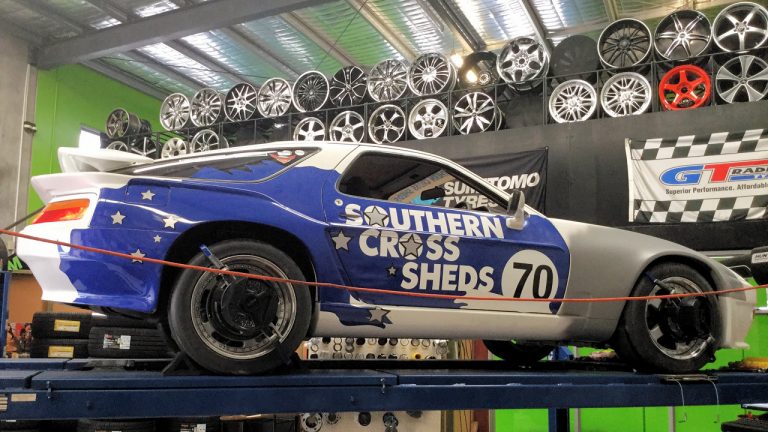 Regular servicing is essential to the longevity of your car and its ongoing safety. By making sure your vehicle is serviced at regular intervals, you will be saving yourself money in the long term and helping make your motoring experience safer for you and your family & friends.
Regular servicing is essential to the longevity of your car and its ongoing safety. By making sure your vehicle is serviced at regular intervals, you will be saving yourself money in the long term and helping make your motoring experience safer for you and your family & friends.
A basic service should not be terribly expensive, but it should cover some important areas, and include some diagnostic elements. There are certain key parts of your vehicle which need to be regularly maintained not only to ensure efficient functioning, but also ongoing safety.
What should a basic vehicle service cover?
A basic vehicle service is meant to ensure your vehicle is safe and well maintained, so that wear and tear can be minimised and potential problems spotted early before they create a more major problem. A typical basic vehicle service may include the following:
- Oil change: The engine requires fresh, clean oil in order to function at its peak.
- Brakes should be checked and adjusted as necessary.
- Tyres should be checked and wheels balanced, tyre pressure set.
- Transmission and diff oil levels need to be checked.
- All water levels need to be inspected and topped up.
- Steering and suspension need to be checked and reported on.
In a nutshell, a basic service like this will replace the oil and look at all of the important, major functions of your car. Adjustments will be made when necessary, and a full report will be given suggesting any areas where work may need to be done.

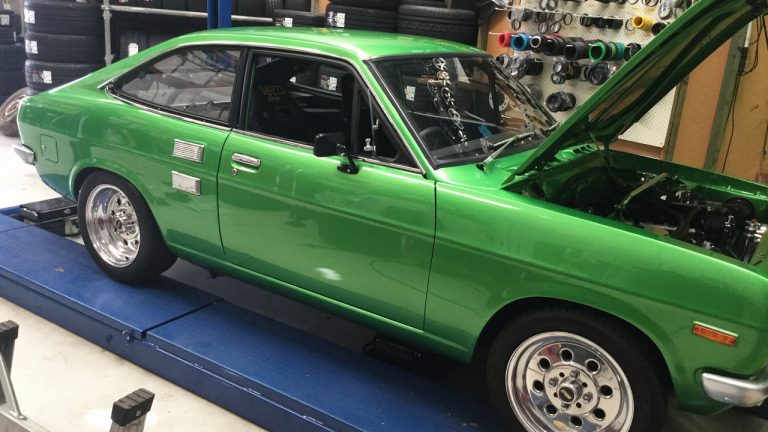 Why have a basic vehicle service?
Why have a basic vehicle service?A service of this type is highly recommended on a regular basis. Just how regular is determined by manufacturer recommendations.
Not only does fresh oil ensure you get maximum performance and longevity from your engine, but a check and adjustment of other areas such as brakes, will also ensure they last as long as possible and forewarn you of any work that may need to be done.
From a safety point of view, the merits of properly functioning brakes can not be overstated, but services like these are also handy because they allow you to plan ahead a little. For example, you may be told that you will need new brake pads at the next service. This allows you to plan your motoring budget.
It is also true that preventative work will save you money. Getting a problem fixed early on is always cheaper than allowing it to become a major repair issue in the future.
Regular basic vehicle services
Having regular services will give you peace of mind, knowing that your car is safe and its engine is running as efficiently as the manufacturer intended, meaning you are also minimising emissions. When you think about it, it makes sense, and this kind of service is surprisingly affordable.
In addition to basic servicing, Phat Wheels can also perform your log book services as required.

Air Conditioning Service
 Air conditioning services are essential for keeping your vehicle comfortable, especially during the summer months, and can help identify any issues before they become too costly.
Air conditioning services are essential for keeping your vehicle comfortable, especially during the summer months, and can help identify any issues before they become too costly.
Regular servicing (recommended every two years) and timely repairs can not only ensure a cool ride but also enhance the overall performance and longevity of your vehicle.
Signs your air conditioning needs attention
Just like any other mechanical system, your vehicle's air conditioning can experience issues, especially as it ages. Here are some common signs that indicate it may be time for a service:
- Insufficient Cooling: If the air isn't as cold as it used to be, or if it’s not cooling at all, this could be a sign of a leak or a failing compressor.
- Weak Airflow: Reduced airflow from the AC vents can be a sign of a clogged cabin filter or issues with the blower motor.
- Unusual Noises: Strange sounds such as grinding or squealing can indicate worn-out components.
- Bad Odour: Musty smells or odours when the AC is turned on could signify mould or mildew buildup in the system.
DIY Maintenance Tips
- Run the AC Regularly: Even in cooler months, running your AC for a few minutes can keep the system lubricated and prevent seals from drying out.
- Keep Vents Clear: Ensure that the air intake and outlet vents are not blocked by objects or debris.
- Monitor Performance: Keep an eye on your AC's performance and address any inefficiencies as soon as they arise.

Roadworthy Safety Certificates
Phat Wheels is an approved inspection station (AIS) for vehicle roadworthy Safety Certificates and Certificates of Inspection (COI), including:
The inspection covers basic vehicle safety standards for many components including brakes, tyres, suspension, steering, body rust and/or damage, windscreen and lights.
- Light vehicles (LV) – light motor vehicles up to and including 4.5t GVM.
- COI Light Vehicle (CL) - light motor vehicles up to and including 4.5t GVM that require a COI.
- Heavy vehicles (HV) – motor vehicles over 4.5t GVM up to and including 16t GVM and unregistered motor vehicles over 16t GVM.
- Light trailers (LT) – caravans and trailers over 0.75t ATM up to and including 4.5t ATM.
- Online inspection certificates (ICO)
The inspection covers basic vehicle safety standards for many components including brakes, tyres, suspension, steering, body rust and/or damage, windscreen and lights.




